Search Results
Showing results 61 to 80 of 105

Can Nutrients in Water Cause Harm?
Source Institutions
In this water pollution activity, learners create pond water cultures and investigate the effects of adding chemicals or natural nutrients.

Home Water Audit
Source Institutions
This activity offers learners and their families several ways to raise their awareness together about home water.
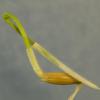
Germination Station
Source Institutions
In this botany activity, learners will create an experiment about seed germination. This activity gives students an opportunity to explore how seeds germinate and react to surrounding conditions.

Color-Changing Carnations
Source Institutions
Learners place cut flowers in colored water and observe how the flowers change. The flowers absorb the water through the stem and leaves.

Heavy Metal
Source Institutions
In this activity (on pages 25-31 of PDF), learners soak sponges with different amounts of plaster of paris to simulate different levels of calcification in bone formation.
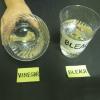
Bone Basics
Source Institutions
This is an activity (on page 2 of the PDF under Bone Regrowth Activity) about the two main components of bone - collagen and minerals (like calcium) - and how they each contribute to its flexibility a

Gross Growth
Source Institutions
In this activity, learners grow germs collected from their hands and other objects. They cultivate the germs on a growth medium (such as slices of grapefruit or processed cheese) for a week.

Making Mosaics
Source Institutions
In this archaeology meets art activity, learners make a mosaic and consider the ways in which art communicates.

The Water Cycle
Source Institutions
Did you know that the water we use today is the same water found on Earth millions of years ago? The Earth constantly uses and recycles water in a process called the water cycle.

Mirror-Tracing
Source Institutions
This mirror-tracing activity related to proprioception is a visual and motor test that involves learning a new motor skill.
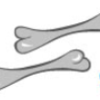
Air-filled (Pneumatic) Bone Experiments
Source Institutions
Just like birds, some dinosaurs had air-filled (pneumatic) bones, which made the dinosaurs' skeletons lighter.

Introduction to the Scientific Method
Source Institutions
In this activity (page 26 of the PDF), learners make observations, formulate hypotheses and design a controlled experiment, based on the reaction of carbon dioxide with calcium hydroxide.

An Interdisciplinary Deer and Human Population Study
Source Institutions
This activity helps the learner answer the question: "What environmental problems arise due to animal and human overpopulation and what might need to be done to combat these problems?" Learners play a

Paper making: a craft and a chemical engineering major
Source Institutions
In this activity, learners explore the question "What is paper?" Learners discover the processes and materials required to make paper while experimenting with different recycled fibers and tools.
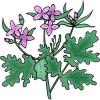
Photosynthetic Pictures Are Worth More Than a Thousand Words
Source Institutions
This activity provides an opportunity for learners to observe and examine how carbon dioxide, water, and light produce glucose/starch through a process called photosynthesis.

Paper Mache Dinosaurs
Source Institutions
In this activity (located on page 6 of PDF), learners observe and reproduce the distinctive physical features (i.e. plates, sharp spikes, long necks, deep jaws, claws) of their favorite dinosaurs.
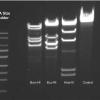
Restriction Enzyme Digestion: How does it work? Why is it useful?
Source Institutions
In this activity related to plant biotechnology, learners use restriction enzymes to cut up DNA from a virus called Bacteriophage λ, a process known as restriction digestion.
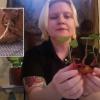
Growing Food From Scraps
Source Institutions
In this activity, learners will explore vegetative propagation while preparing food scraps to grow into plants.

Saguaro Nest Cavities
Source Institutions
This activity (on page 3 of the PDF under GPS: Cactus Activity) is a full inquiry investigation into how some desert birds keep their cool.
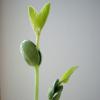
From the Ground Up
Source Institutions
In this plant science activity, learners conduct four experiments to observe how plants respond to sunlight and gravity.
